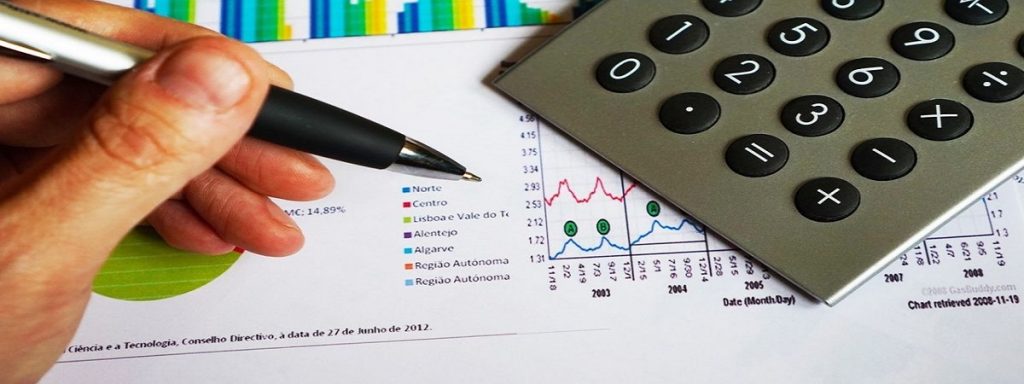Welfare is a type of government support that provides financial or other aid to families with dependent children or people who cannot support themselves. The main intent of welfare is to ensure that certain types of people can meet basic human needs such as food and shelter. People who use welfare usually receive a biweekly or monthly payment. Moreover, because of the COVID-19 pandemic situation, many people found themselves in the position of receiving financial support from the Welfare programs. So a question has arisen; do people on welfare require paying taxes.
Earnings from work are taxable but if you are a low-income worker and require cash assistance from welfare programs then the amount you receive from welfare is exempt from taxation. In fact, if you receive financial support from the welfare then you don’t even have to report it on your tax return. Moreover, if you are disabled or blind and receive monetary support then you don’t have to pay taxes on any financial assistance.
What Is Welfare?
Welfare indicates a range of government programs that provide financial and other supports to families or groups of people who are not able to pay for their food, housing, medical costs, clothing, etc. Usually, welfare funds are funded by taxpayers and the goal of welfare programs also varies. Some welfare programs try to promote the pursuance of work while others work for a better standard of living.
Types Of Welfare Programs In The USA
In the USA there are six major welfare programs available. The eligibility for these programs is determined based on income and local poverty levels. The welfare programs are –
1. Temporary Assistance for Needy Families (TANF)
2. Medicaid
3. Supplemental Nutrition Assistance Programs (SNAP or “food stamps”)
4. Supplemental Security Income (SSI)
5. Earned Income Tax Credit (EITC)
6. Housing assistance
Eligibility Requirements Of Temporary Assistance For Needy Families (TANF)
1. Must be a U.S citizen or legal alien
2. Must be a resident of the state where this program is available
3. Must be unemployed or underemployed
4. Have no or very low income, and
5. Have a child 18 years of age or younger, or
6. Be pregnant, or
7. Be 18 years of age or younger and the head of your household
Eligibility Requirements Of Medicaid
1. Must be a U.S citizen or legal alien
2. Must be a resident of the state where this program is available
3. Require health care/insurance assistance
4. Have no or very low income, and
5. Pregnant, or
6. Be responsible for a child 18 years of age or younger, or
7. Blind, or
8. Have a disability or a family member in your household with a disability, or
9. Be 65 years of age or older
Eligibility Requirements Of Supplemental Nutrition Assistance Programs
1. Must be a U.S citizen or legal alien
2. Must be a resident of the state where this program is available
3. Have a current bank balance (savings and checking combined) under $2,001, or
4. Have a current bank balance (savings and checking combined) under $3,001 and share your household with one of the following:
5. A person or persons age 60 and over or
6. A person with a disability (a child, your spouse, a parent, or yourself)
Eligibility Requirements Of Supplemental Security Income (SSI)
1. Must be a U.S citizen or legal alien
2. Must be a resident of the state where this program is available
3. Be at least age 65 or be blind or disabled
4. Have limited income and resources
Eligibility Requirements Of Earned Income Tax Credit (EITC)
1. Must be a U.S citizen or legal alien
2. Must be a resident of the state where this program is available
3. Have investment income below $3,650 in the tax year
4. Have a valid Social Security number
5. Have to claim the Head of Household filing status if unmarried and pay more than half the costs of keeping up the home
Eligibility Requirements Of Housing Assistance
1. Must be a U.S citizen or legal alien
2. Must be a resident of the state where this program is available
3. Have limited to low-income
4. Qualify as elderly, or
5. A person with a disability, or as a family
Tax Policy For People Who Are On Welfare
A person can receive different types of welfare or temporary cash assistance from a government agency. As long as the financial supports are from different welfare programs, they are exempt from taxation and there is no necessity to report the financial support on the tax return. Moreover, you don’t have to pay any tax on the amount of money that you receive from the welfare programs. Social Security Disability Insurance (SSDI) is also a government benefit that is not taxable.
The disability payments from the Department of Veteran’s Affairs also exempt from taxation. Moreover, there are other types of disability that are not considered “welfare” in the traditional sense but they are also exempt from taxation. Furthermore, if you receive accelerated benefits from a life insurance policy because of an accident or illness then they are also not taxable.
However, there are two rules about welfare being nontaxable. The first one is welfare funds that were obtained fraudulently and the second one is any compensation for services that were gained through a job or workfare program, which counts as employment. Moreover, if you receive welfare funds as well as you also work, then you might have to pay income tax on your income earned from work.
Other Types Of Nontaxable Government Income
Apart from the welfare programs, there are other types of nontaxable government income available. For example, you won’t be taxed for any hospital insurance benefits for eldercare. Disability and Social Security benefits are also exempt from taxation. Moreover, if you receive money for work-related training due to a disability or any accommodation for your disability then you won’t be taxed. Other nontaxable incomes are Medicare benefits, home affordable modification program benefits, nutrition program food benefits for elderly people, etc. Furthermore, benefits related to dental medical expenses, housing, loss of personal property benefits from a natural disaster, transportation or funeral expenses, etc. are not taxable either.
FAQs About Do People On Welfare Pay Taxes
Do People On Welfare Get A Tax Refund?
If a person on welfare files tax returns and tax credits are applied then he/she will get a tax refund. Moreover, if tax is filled on any income earned via public assistance then they will be entitled to tax refunds.
What Social Welfare Payments Are Taxable?
There are few social welfare payments available that are taxable. They are:
1. Maternity Benefit
2. Paternity Benefit
3. Adoptive Benefit
4. Health and Safety Benefit
Does Welfare Money Come To From Social Security?
Social security benefits are also a type of welfare that you will eventually collect when you will reach retirement age. Usually, the welfare money is collected from the taxpayers. So it is a gift from the taxpayers to people who require financial help.
What Does It Mean When Someone Is On Welfare?
If someone is on welfare then it means the person or his family has no or low income and therefore receiving money from the government.
How Can I Get Money From The Government?
There are many ways you can get money from the government. Some common ways are –
1. Get help with utility bills
a) The Low Income Home Energy Assistance Program
B) The Lifeline program
2. Find money for child care
A) Child Care and Development Fund
3. Recover unclaimed money
4. State-based down payment assistance
5. Find tax credits for health insurance
6. Apply for college grants
a) Federal Student Aid
Do Disability Payments Count As Income?
No, disability payments are not counted as income. So if you are receiving disability payments then you don’t have to worry about the taxation and tax return.
Is Child Benefit A Social Welfare Payment?
Child benefit is not a social welfare payment; it is a universal payment. If you have a child dependent aged below 18 then you will receive child benefit regardless of your income level and your social insurance (PRSI) record.
Do You Declare Child Benefit On A Tax Return?
It’s totally up to you whether you want to declare child benefit on a tax return or not. If you want to declare child benefit on tax return then you have to declare the Child Benefit by filling in a Self-Assessment tax return.
Can You Claim A Disabled Person On Your Taxes?
Yes, you can claim a disabled individual on your income tax. But, you have to ensure that the person meets the age, relationship, income, and medical requirements for dependent status defined by the IRS.
What Are Some Social Welfare Payments?
There are six major welfare programs available in the USA. Apart from these major welfare programs, there are also other social welfare payments available. They are:
1. Disability Allowance
2. Illness Benefit
3. Invalidity Pension
4. One-Parent Family Payment
5. Carer’s Allowance
Can I Get A Tax Refund If My Only Income Is Social Security?
If your only income is from social security benefits then that income is not taxable and you don’t have to file a tax return. So it means, you won’t be able to get a tax refund if your only income is social security.
References:
1. https://www.forbes.com/sites/kellyphillipserb/2016/04/06/taxes-from-a-to-z-2016-w-is-for-welfare-benefits/
2. https://www.investopedia.com/terms/w/welfare.asp
Last Updated on February 5, 2022 by

Magalie D. is a Diploma holder in Public Administration & Management from McGill University of Canada. She shares management tips here in MGTBlog when she has nothing to do and gets some free time after working in a multinational company at Toronto.





